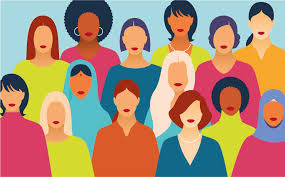
Recently in London, two women of influence, met at a polo club for a function that was taking place there.
As an ice breaker, the first woman said, “Hello Liz, it has been a long time since we spoke. How are you? You look great.” To which the women woman who was being greeted replied, “I am fine thanks for asking. It has been a while. You are looking great too.”
The first woman replied, “Thank you. Please do not forget that I am still working in the financial consultancy scene, when opportunities arise in your organization, please remember me.”
The second woman replied, “Indeed.” And then she moved away.
The following day, the second woman wrote a long email, to the woman who was soliciting for consultancy work, scolding her that her request to be considered for consulting work made her uncomfortable. She added that it constituted harassment.
She argued that, here she was out with her husband to unwind and enjoy and the first person she meets, is already soliciting for work. In the past, the complaining woman had indeed sent potential opportunities to the soliciting woman, but she had missed the brief.
The jobs she sent through were for full-time employment whereas the soliciting woman was scouting for financial consultancy assignments. I am writing this story because the financial consulting woman called me in tears, hurt, disappointed, horrified and humiliated at the use of the word “harassment”. She was upset, but felt the need to apologise to the second woman for a wrong she did not understand. Men scout for opportunities this way every day.
Why are some women closed to the idea of opening up the business terrain to other women?
- Zim tycoons elevate offspring to key roles
- Zim tycoons elevate offspring to key roles
- Nation lines the streets for its new King
- Out & about: Kiddo CSA outdoes his jump!
Keep Reading
This story is a clear case of women of influence, failing to recognise the need to bring in more women to the high table. It is also a situation where as a member of a social capital network, she refused to commodify and monetize that social capital network.
Thirty-three years ago, when I helped found a ground-breaking organisation for the United Nations, I invited several women to sit on the table, with one of them sitting at the head of the table. I was a private sector development consultant. Consultants must never hog the lime tight.
They are deal brokers who put simply organize situations for peak performance and leave.
However, there was an opportunity for me to be future ad hoc Trainer for this same organization I had set up. A meeting was held to choose the first cohort of trainers. An American consulting company was also involved as they help the rights to the training materials. The woman of influence whom I had invited to sit at the head of the table was also a decision maker.
During the first training which I attended, I was unhappy with the sweeping statements on Africa and Zimbabwe that the American trainers were making so I spoke out. To be honest, the American trainers has a condescending attitude. During the meeting of selecting the first cohort of future trainers, the Americans indicated that they did not want me to be one of the trainers because “she has the habit of plant ideas into people’s heads.” So I was excluded on that basis.
What shocked me was the first that the woman of influence I helped occupy the sit at the top of the table, did not fight for me to be included. She agreed with them and she is the one who revealed the reason for my exclusion. How patronizing to think that Zimbabweans do not think and a mere 30-year-old woman, will “plant ideas into their minds.”
This was a clear case of opening a door for someone who then enters and shuts the door on you. Nevertheless, I learned at that young age that not every woman you affirm into positions of influence, will reciprocate.
When you believe you are building monetizable social capital for yourself, you could very well be building nothing.
This instalment explores the idea of women of influence not becoming monetizable social capital for other women in business spaces.
This is a complex issue that reflect broader dynamics of power, competition, and inequality. But there is a caveat.
The two examples given above are anecdotal and do not in any way constitute a representative sample. I would like to clarify that the behaviours I have described are not universal to all women. I have observed the issue under discussion in a specific Zimbabwean context.
It may be a cultural or individual behaviour, but in the absence of empirical evidence, it is not a universal truth about women's interactions. Be that as it may, many of my personal experiences in Zimbabwe have left me bruised, cautious and worried about interactions with women in business and women who occupy positions of power and influence.
Having said that, I will attempt to provide a balanced exploration of the dynamics I have just described.
Competition and collaboration
In the world of business, where competition and collaboration often intersect, the role of women has been a subject of increasing attention and scrutiny.
While women have made significant strides in the business world, there are still challenges that hinder their progress, including the issue of women not always supporting each other as they climb the corporate ladder.
This phenomenon raises questions about why some women may choose to shut the door on their peers rather than extend a helping hand. Furthermore, the failure of successful women to become monetizable social capital for other women, they know and interact with, in the business world, points to deeper issues within the dynamics of female relationships in professional settings.
Broader societal context
To understand this phenomenon, we must first acknowledge the broader societal context in which women operate. Here are ten (10) reasons that explain this historical context:
Historical and societal norms: Throughout history, societal norms have often dictated that men are the primary breadwinners and decision-makers in business and finance. This cultural background may have influenced men to prioritize networking with a business mindset, seeking opportunities to advance their careers and financial interests. On the other hand, women might have been encouraged to focus more on building personal relationships and familial connections rather than professional networks.
Gender stereotypes and expectations: Gender stereotypes can play a role in shaping how individuals approach networking. Women may feel pressure to conform to societal expectations of being nurturing, collaborative, and relationship-oriented, which could lead them to prioritize building personal connections over seeking out business opportunities. In contrast, men may feel more pressure to be assertive, competitive, and ambitious in their networking endeavors.
Unequal access to opportunities: Women have historically faced barriers to accessing the same professional opportunities as men, such as being excluded from male-dominated industries or leadership positions. This lack of access can limit women's ability to build networks that are conducive to monetization. Men, who have traditionally held more power and influence in business circles, may find it easier to leverage their networks for financial gain.
Differences in networking styles: Research suggests that men and women may have different approaches to networking. Men may be more likely to engage in transactional networking, where they focus on immediate gains and business outcomes. In contrast, women may prefer relational networking, emphasizing long-term relationship building and trust. This difference in networking styles could influence the monetization potential of their networks.
Cultural expectations of leisure activities: Take for example a situation of golfing as a game played by both women and men. Golf as a sport highlights a common cultural expectation that men often use leisure activities like golf as opportunities for networking and deal-making. This trend may stem from historical practices where men conducted business on the golf course or in exclusive clubs. Women, on the other hand, tend to approach leisure activities with a different mindset altogether, focusing on enjoyment and relaxation rather than networking for financial gain.
By unpacking these dynamics and addressing the underlying causes, we can work towards creating a more inclusive and equitable business world where women can support and empower each other to achieve their full potential. It is through collaboration, solidarity, and a collective commitment to change that we can build a more equitable future for all women in the workspaces and in business.
- Ndoro-Mukombachoto is a former academic and banker. She has consulted widely in strategy, entrepreneurship, and private sector development for organisations in Zimbabwe, the sub-region and overseas. As a writer and entrepreneur with interests in property, hospitality and manufacturing, she continues in strategy consulting, also sharing through her podcast @HeartfeltwithGloria. — +263 772 236 341.










